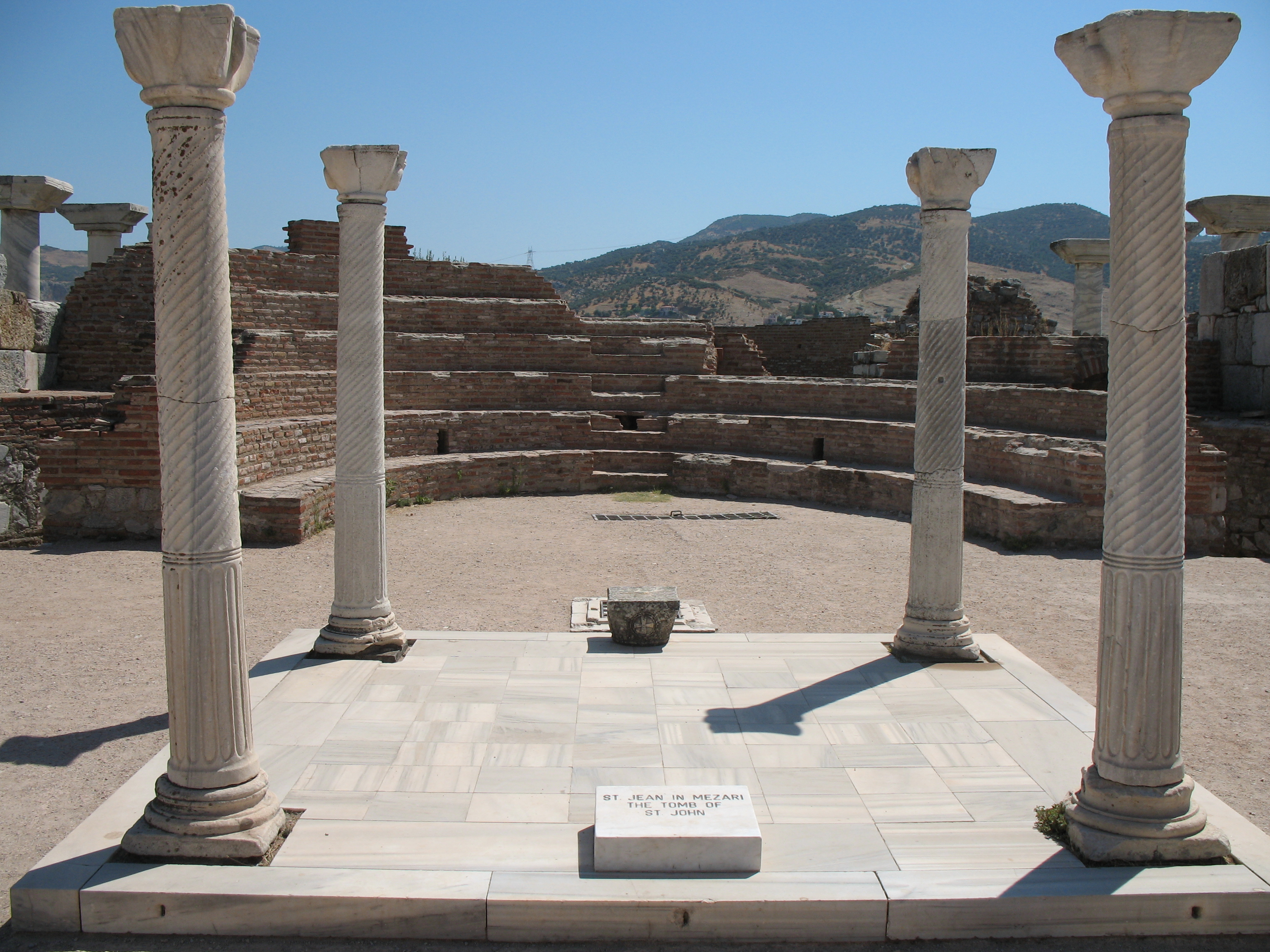June 17, 2016: Day 19 – Acts 19
June 17, 2016Ephesus has to be one of my favorite New Testament cities. The Apostle Paul spent a lot of time here, even just in these verses we find him spending two years. John, the Gospel writer, also spent a lot of time there and it is thought that he wrote his Gospel in Ephesus. When Stacy and I went there almost a decade ago I was absolutely enraptured. So much of Scripture came alive. Since John the Gospel writer is one of my all time favorite people, it was almost as if I had arrived at a place of God’s strong presence.
This is the burial place of John in Ephesus. It is also thought that in the hillsides of Ephesus Mary, Jesus’ mom, lived and had her home. Now most of this latter story is non-historical and more of legend than anything else, but it sounds good. But remember when Jesus was on the cross when he said to John in the Gospel of John 19:27 that Mary would now be his mother, and he would be her son. From that it is implied that because John settled and ended his life in Ephesus, so did Mary. After all of that is said, I love Ephesus. But the people of Ephesus did not necessarily love Paul, at least not those who were involved in making the idols for this town which was at the center of idol worship.
The chapter begins with those who, like Apollo originally, had only been baptized by John which would have been a baptism of cleansing in order to enter the temple. They did not know who Jesus was, that he was the Messiah. Upon hearing and receiving that news they then turn and give their lives to the Savior. The Holy Spirit descends upon them after Paul lays his hands on them. When we ordain, when we commission, when we baptize, when we send people off, we lay hands. We believe so strongly, because of the example that we have in Scripture, that the laying on of hands is not just symbolic, but a powerful tool that God can use to indwell those who have hands laid on them with the Holy Spirit.
I’ll never forget an argument that I heard from a student at my college that Paul was almost as important as Jesus. I think you know where I stand on that statement. I do believe that Paul was incredibly infused with God’s presence and power, but I’m not crazy about some of his statements or his character flaws. But in vs.11 and following we see how God was able to work miracles through him. Diseases and evil spirits left people who came into contact with Paul, or even his clothing. That’s pretty powerful and also, if you’re not on that side, pretty scary stuff. All of the residents of Ephesus were awestruck. Verse 19 states that those who practiced magic burned their books. Now, not to confuse the book burnings of days gone by where people burned books out of ignorance. Here, these books were burned because they directly were teaching others in black magic. We do believe in a spirit world. One is of God, and one is not. I don’t see much of a grey area in the spirit world. It is either of God or it is of the devil. My approach is never to get caught up in any kind of spirit world that is not of God. I don’t understand it all, don’t believe all of it, but I do move cautiously because I don’t understand much of it. When we talk about evil spirits, it is best to just stay away and not play around with it.
Trouble then starts in Ephesus. Once again in vs.23 we see a reference to the name of this religious group with which we identify which we call Christians. They were called the Way. The problem was that because Ephesus was such a hot spot of idol worship, the temple of Artemis was located in Ephesus which was one of the 7 wonders of the world at the time, that those who created those idols were feeling an economic pinch because Paul’s words were actually effective and winning converts. It wasn’t just those who followed the Way that were the problem, Jews would also have been a problem because they did not condone idol worship. Now, the Jews would not have been as militant as those who followed the Way, like Paul, and in fact Jews and Greeks lived in harmony for quite some time in Ephesus. The Jewish community allowed the Greeks to worship their gods without a problem, and the Greeks allowed the Jews to worship their one god. But when Paul comes around, well, he tells people it is wrong to worship the idols and that we should probably get rid of them all. That was a problem.
What could have potentially turned into a lynch mob is quieted down by the town clerk. Originally a certain Alexander who was pushed forward by the Jews as someone to speak sense to the people, was shouted down by the people. As a Jew he had nothing to say that would be of benefit to those trying to save their livelihood. The town clerk, we don’t know who that was but he was obviously one of “them”, then quiets down the crowd. He appealed to the law of the land and to allow that to play itself out. The assembly disperses.
